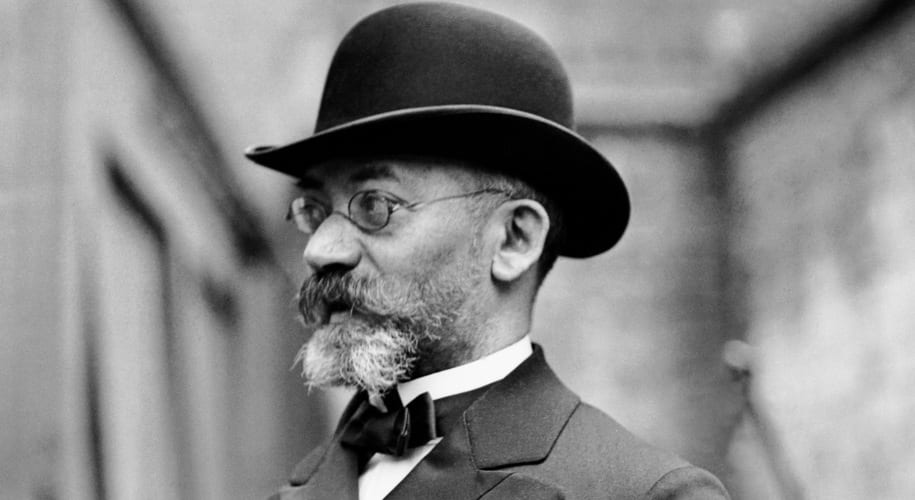He was born in Bialystok, a multinational and multilingual city. This environment, which spoke Polish, Yiddish, Ukrainian, Belarusian, Lithuanian and German, inspired him to create a new language - Esperanto. In his play "Wieża Babel, czyli tragedia białostocka w pięciu aktach" ("The Tower of Babel, or the Białystok Tragedy in Five Acts") he blamed the language barrier, cultural and religious differences for all misunderstandings between people.
Zamenhof's dream was a language that would unite all the people of the world. In 1887, under the pseudonym Dr Esperanto, he published a manual for learning the new language. Today it is spoken by around a million people and there are over a thousand places named after him or Esperanto.
The Polish Parliament passed a resolution commemorating the creator of this most popular artificial language in the world. Resolution
Ludwik Zamenhof/PA Archive/PA Images /PAP/EPA



